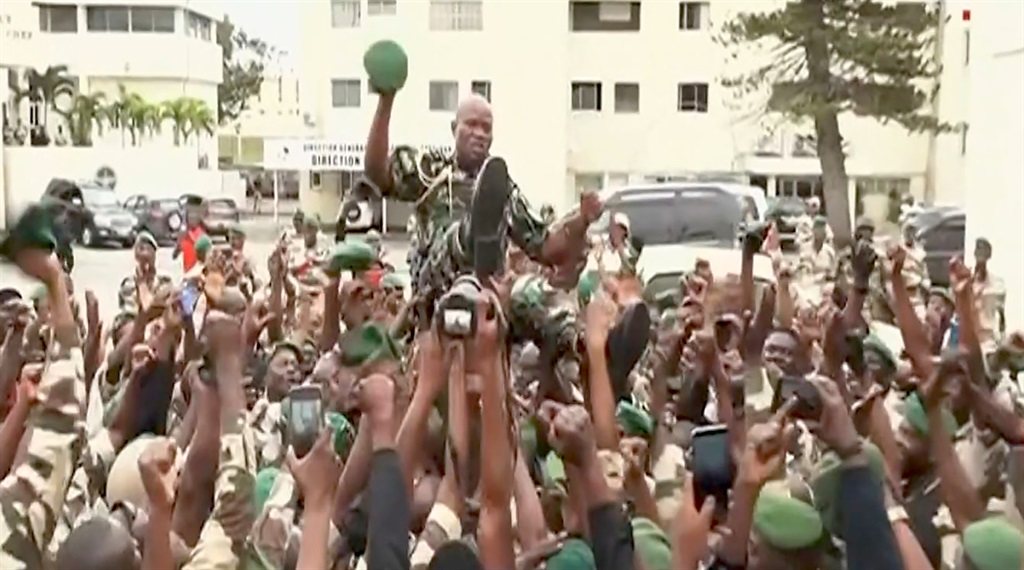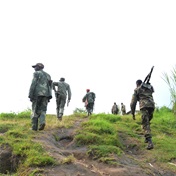
News analysis
- Gabon and Zimbabwe disputed elections within days of one another.
- In many ways, the run-up periods were similar across the two countries.
- But there is a key difference: the loyalties of their militaries.
Zimbabwe in Southern Africa and Gabon in West Africa both held polls last week, within days of one another, and both outcomes were in dispute, to the point of a military coup in Gabon on Wednesday.
They are geographically and economically far apart, but the elections in the two countries had some notable features in common, such as environments where the opposition was frustrated, and the chances of regime change curtailed.
In Zimbabwe, President Emmerson Mnangagwa won a disputed 52.6% of the vote, and his closest rival, Nelson Chamisa, polled at 44%.
In Gabon, President Ali Bongo earned a third term, with a reported 64.27% of the vote, with the opposition leader, Ondo Ossa, a former education minister, with just 30.77% of the vote.
Osso was the candidate for a coalition of the opposition, called Alternance 2023.
Both Chamisa and Ossa accused their respective incumbents of electoral fraud.
During vote counting in both countries, both opposition leaders held press conferences in an attempt to get the attention of the international community.
In Zimbabwe, elections were delayed due to a lack of voting material.
In Gabon, Ossa claimed that, at some polling stations, his name simply didn't appear on the ballot paper.
With elections underway, in both countries, the internet was interrupted.
In Zimbabwe, according to Surfshark, it was slowed down, but, in Gabon, it was shut down.
In both countries, the law forbids the publishing or announcement of results, pending the final results that come from the Zimbabwe Electoral Commission and Gabonese Elections Centre respectively.
In both countries, the period leading to the general elections was marred by repression and the opposition being blocked from campaigning.
In Zimbabwe, opposition rallies were banned and new laws, such as the Patriotic Bill, sought to criminalise those who "damage the national interest of the country or critique of the Government of Zimbabwe".
In Gabon, before elections, there was a law change that any vote for a local deputy would automatically be a vote for that deputy's presidential candidate.
The key: military support
A major difference between the two countries is in how their militaries are aligned.
The military in Zimbabwe is on the side of the ruling party - but, in Gabon, the military is opposed to the extension of the Bongo dynasty.
The first coup in Gabon, in February 1964, toppled the founding Gabonese president Léon M'ba.
M'ba was later reinstated after then-French president Charles de Gaulle's intervention.
M'ba was succeeded by Omar Bongo in 1967.
As president, Bongo in 1990 re-introduced multi-party politics, but managed to hang on to power until his death in June 2009. He was replaced by his son, Ali Bongo, a one-time funk musician.
On 7 January 2019, the military staged a failed coup against Ali Bongo.
This time, after the disputed general election polls for Bongo's third term, the military moved in, calling for the cancellation of the results, which they said were a result of a skewed election.
READ | African Union 'strongly condemns attempted coup' in Gabon
But, in Zimbabwe, the military is the power behind the throne.
Since the turn of the century, senior army commanders have come out in defence of ruling Zanu-PF party presidents ahead of general elections, declaring that they would never salute people with no revolutionary credentials.
This means that, whenever the military voiced itself in Zimbabwe, it was in support of the ruling party.
When Zimbabwe had its own military coup in November 2017, the military did not take power, but instead gifted it to a military ally in the political establishment, Emmerson Mnangagwa.
Numerous key players in the Zimbabwe coup retired as government ministers, reinforcing that the coup defended the interests of the military and political ruling elite, rather than seeking to replace them.
In Gabon, things are shaping up differently.
The News24 Africa Desk is supported by the Hanns Seidel Foundation. The stories produced through the Africa Desk and the opinions and statements that may be contained herein do not reflect those of the Hanns Seidel Foundation.




 Publications
Publications
 Partners
Partners























